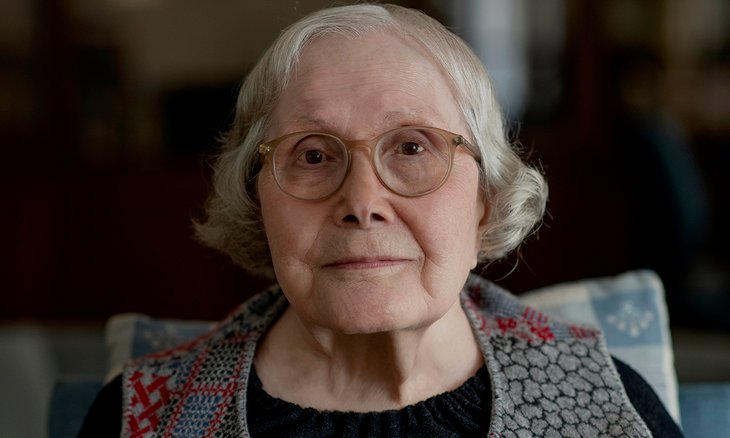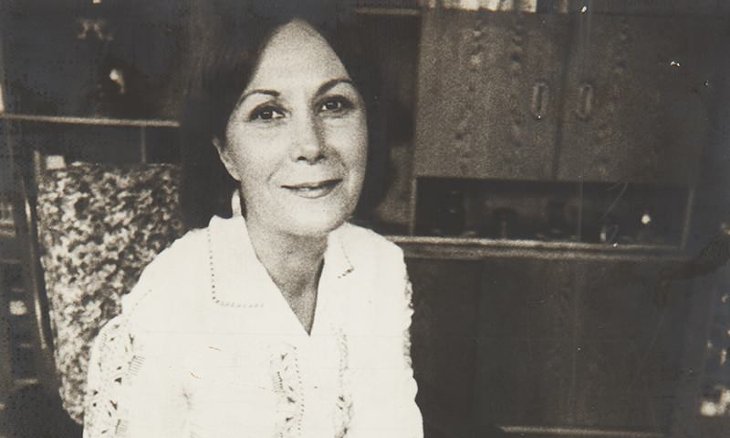Turkish novelist Adalet Ağaoğlu dies at 91
Prominent Turkish author Adalet Ağaoğlu died on July 14 at the age of 91. Thousands of tweets were shared to pay respects to the renowned author, as politicians also shared messages of condolences. A human rights defender, Ağaoğlu's writings focused on social issues and their impacts on individuals.
Duvar English
Prominent Turkish author Adalet Ağaoğlu died on July 14 at the age of 91.
She is described as the most prolific authors of 20th century Turkish literature.
“We lost Adalet Ağaoğlu this morning,” wrote Turkish literary critic Semih Gümüş on Twitter.
“She was one of the most important writers of our literature. Her novels were very special,” Gümüş said sharing a photo of the Turkish novelist along with her husband who died in 2018.
Adalet Ağaoğlu'nu bu sabah kaybetmişiz. Edebiyatımızın en önemli yazarlarındandı. Romanları çok özeldi. Onu hiç tanımadan iki romanı hakkında iki küçük kitap yazmıştım. Sonra tanıştık. Çok konuştuk. Bu fotoğraftaki eşi Halim Ağbi de ayrıca özel bir insandı. Her şey çok üzücü. pic.twitter.com/bGNuq9YArB
— Se. (@semihgumus) July 14, 2020
Turkey’s prestigious Boğaziçi University said: “We have lost the great name of our literature, the valuable writer Adalet Ağaoğlu, who has an honorary Ph.D. from Boğazici University. She will always live with her works.”
Edebiyatımızın büyük ismi, Boğaziçi Üniversitesi Fahri Doktora sahibi değerli yazar Adalet Ağaoğlu’nu kaybettik. Eserleriyle her zaman yaşayacak.
— Boğaziçi Üni. (@UniBogazici) July 14, 2020
Thousands of tweets were shared to pay respects to the renowned author, as politicians also shared messages of condolences.
The award-winning writer was born in 1929 in the Turkish capital Ankara. She studied French Language and Literature at Ankara University.
Her first novel, Lying down to Die, was published in 1973 and soon became a hit, later becoming a trilogy with the publication of A Wedding Night (1979) and No (1989).
Ağaoğlu's second novel, Thin Rose of My Thoughts (1976), was pulled off the shelves at the fourth edition after charges were filed against her for "humiliating and deriding armed forces." She was eventually acquitted after a two-year trial.

In 2010, Ağaoğlu donated her personal archive to Boğaziçi University which has been kept in a room designed under her supervision. This room also contains her personal objects such as her study-desk and typewriter, her correspondence and the first editions of her books.
A human rights defender, Ağaoğlu's writings focused on social issues and their impacts on individuals.
In an interview with daily Hürriyet in 2012, Ağaoğlu commented on the years-long Kurdish issue, saying that the solution lies in completely getting rid of a constitution that's based on race.
She also said that the main problem of Turkey is that it seeks a "one man rule" all the time.

"A one man is sought all the time. This search is very dominant. Atatürk is being sought constantly. This search, as well as nationalism, are not the positive ways to go," Ağaoğlu told then-Hürriyet reporter Cansu Çamlıbel, referring to the founder of modern Turkey, Mustafa Kemal Atatürk.
Ağaoğlu also said that she never believed that Turkey is a secular state due to the existence of the Religious Affairs Directorate (Diyanet), of which the salary is paid by the state.
"I've never believed that we're a secular state because you can't be secular with an institution that the state is paying the salaries of. The military gets the largest share of our budget and it's followed by Diyanet. The shares of education, health and culture are little," she had said.
